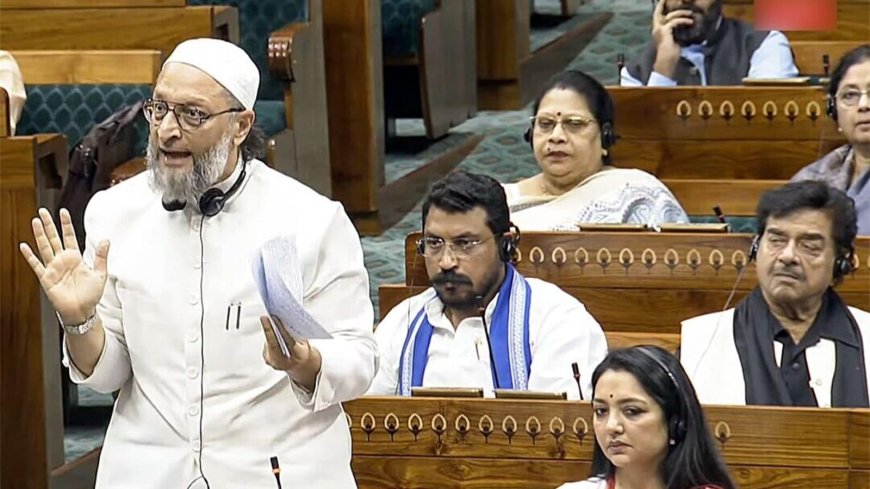‘I am tearing this Bill as this Bill is unconstitutional’: AIMIM chief Asaduddin Owaisi on Waqf Bill debate
Waqf Bill: During the debate, Owaisi claimed that the the Waqf (Amendment) Bill treats Muslims unfairly. This bill is aimed at curbing the religious freedom of Muslims, he said, adding that people will teach BJP's allies like TDP and JD(U) a lesson.

‘I am tearing this Bill as this Bill is unconstitutional’: AIMIM chief Asaduddin Owaisi on Waqf Bill debate
In a passionate speech during the recent parliamentary debates, AIMIM chief Asaduddin Owaisi vehemently opposed the Waqf Bill, declaring, “I am tearing this Bill as this Bill is unconstitutional.” His criticism reflects ongoing concerns regarding the implications of the proposed legislation on the Muslim community's rights and the management of Waqf properties across India. The comments sparked significant debate among lawmakers and the public alike, igniting discussions about constitutional rights, religious freedoms, and property management.
The Context Behind the Waqf Bill
The Waqf Bill aims to amend existing laws governing Waqf properties, which are charitable endowments established for religious purposes within the Muslim community. Proponents of the bill argue that it will lead to better management and utilization of these properties, ensuring they serve their intended purposes. However, Owaisi and other critics argue that the bill undermines the constitutional safeguards provided to religious minorities, suggesting that it may result in the misappropriation of religious assets.
Owaisi's Standpoint
Owaisi's fiery remarks are reflective of a broader unease among minority communities regarding legislative measures that they perceive as threats to their autonomy. He contended that the bill was not only unconstitutional but also a direct attack on the sanctity of Waqf properties. His stance underscores the urgency of protecting minority rights in the face of legislation that could alter their foundational religious structures.
Reactions from Political Leaders
The debate surrounding the Waqf Bill has elicited mixed reactions from various political factions. Supporters of the bill argue that reform is necessary to ensure transparency and accountability in Waqf management. However, opponents, including Owaisi, maintain that legitimate concerns must be addressed and ensure that any reforms do not infringe upon the rights of religious communities.
Public Response
As the debate continues, public opinion remains divided. Many community leaders and activists express apprehension, fearing that the bill could lead to gentrification of historically significant religious sites. The discourse around the Waqf Bill has reignited discussions on the role of religion in Indian politics and governance, calling for a more nuanced approach that balances reform with preservation of community rights.
Conclusion
Asaduddin Owaisi's declaration to tear up the Waqf Bill emphasizes the critical need for dialogue and reflection in the legislative process. It serves as a reminder of the responsibilities lawmakers have towards protecting the rights and identities of diverse communities. As debates unfold, it is essential for all stakeholders to engage in constructive dialogues to find solutions that uphold the Constitution and respect the rights of religious minorities.
For more updates on legislative debates and community rights, visit News by dharmyuddh.com. Keywords: Asaduddin Owaisi Waqf Bill, AIMIM leader statement, unconstitutional legislation, Waqf properties management, minority rights in India, political debate on Waqf Bill, religious freedoms India, legislative reforms in India, Muslim community rights, public opinion on Waqf Bill.







